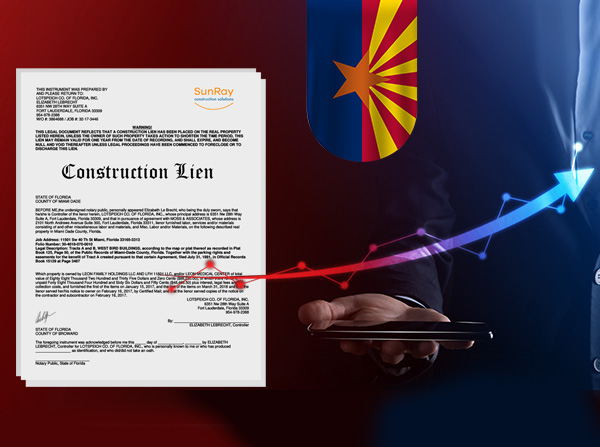How to Recover if You Missed the Deadline for a Notice to Owner (NTO)
While missing an NTO deadline can present obstacles, staying informed and proactive can greatly improve your ability to recover unpaid amounts and preserve key business relationships in construction.
Last updated:
Dec
10
,
2025
Published:
Nov 7, 2024
3 mins
Read
Missing the deadline for a Notice to Owner (NTO) can be stressful for contractors and subcontractors in the construction industry. However, there are steps you can take to recover and safeguard your payment rights.
This guide walks you through practical strategies and legal options to protect your interests even if you miss the NTO deadline.
Why do you need a Notice to Owner? (NTO)
The Notice to Owner is an essential document in many states—especially in Florida—designed to inform property owners of your involvement in a project. It must be sent within 45 days of starting work or delivering materials. Failing to send this notice can compromise your ability to file a mechanics lien, a key tool for securing payment for your services.
Best Practices If You Missed Sending Your Notice to Owner

- Re-Check Your Deadlines
Before worrying, verify whether you’ve truly missed the deadline. Some situations provide more flexibility than others. For instance, if you were contracted directly by the property owner or if the project is bonded, an NTO may not be necessary. In Florida, a direct contract with the property owner exempts you from the NTO requirement, though sending one is still advised to reinforce your payment claim.

- Inform Key Stakeholders of your Construction Project
If you confirm that you missed the deadline, promptly inform all relevant parties, including the property owner and other stakeholders. Taking this proactive step shows professionalism and can encourage the owner to settle any outstanding payments before legal steps become necessary.
- File Your NTO Anyway
Even if the deadline has passed, consider filing the NTO as soon as possible. While this may not fully restore your lien rights, it establishes a formal record of your claim, which could aid in negotiations for payment later.
- Evaluate Alternative Legal Avenues
If filing an NTO is no longer an option, other legal remedies might still be available. Consider these alternatives:
- Mechanics Lien: If you've completed work and are unpaid, you might still be eligible to file a mechanics lien within 90 days of your last work on the project. Make sure to follow all procedural requirements.
- Bond Claims: For bonded projects, you might be able to make a claim under the bond without an NTO. Review the bond’s provisions to see if it covers claims for unpaid work.

- Use a Lien Management Software
Avoid missing deadlines by implementing a robust tracking system for key project dates with lien management software like SunRay. Use calendar reminders to stay on top of important milestones for notices and liens—all from a single, centralized dashboard. This proactive approach helps ensure all essential documents are sent on time.
Final Thoughts
Missing an NTO deadline can be challenging, but it doesn’t have to be the end of your payment rights. By exploring your options—whether filing a late NTO, communicating with stakeholders, or pursuing alternative legal avenues—you can still protect your interests.
Establishing strong internal processes will also help prevent missed deadlines in the future, enhancing your chances of getting paid and maintaining positive relationships in the industry.
Protect Your Rights with a Notice to Owner
Sending a notice to owner is the first step to secure payment on construction projects. Learn how a notice to owner Florida helps protect your lien rights and ensures you get paid.
Protect Your Payment Rights with Florida’s Most Trusted Notice & Lien Services
Notice to Owner – Secure your lien rights early. File your NTO now!
Notice to Owner Florida – Stay compliant with Florida deadlines. Send your NTO today!
Mechanics Lien Florida – Get paid faster. Start your Florida lien process now!
FAQs
What happens if I miss the deadline for submitting an NTO?
Missing the NTO deadline can jeopardize your ability to file a mechanics lien, but there are still legal options available, such as filing an NTO late or pursuing a bond claim if the project is bonded.
Can I still file an NTO after the deadline has passed?
Yes, you can file an NTO even after the deadline, although it may not fully restore your rights to file a lien. However, it establishes a record of your claim and may assist in payment negotiations.
What legal alternatives are available if I miss the NTO deadline?
If the NTO deadline is missed, you can still explore options like filing a mechanics lien (within 90 days of your last work) or making a claim against a project bond if applicable.
How can I prevent missing NTO deadlines in the future?
To avoid missing future deadlines, implement an internal tracking system, such as using lien management software, and set calendar reminders for key project milestones related to notices and liens.
Sunray Construction Solutions offers professional "Notice to Owner Florida" services to help you secure your lien rights in the construction industry. Looking for a free Notice to Owner form in Florida? Get your free, editable "Florida Notice to Owner Template" today for easy and accurate preparation.












